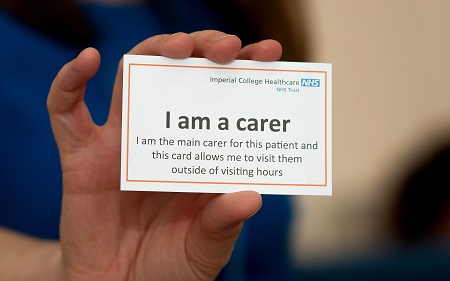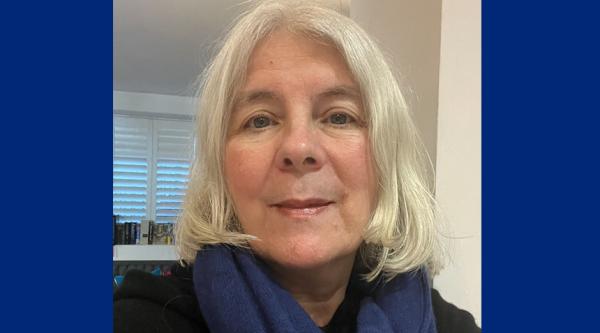A hospital trust giving carers of people with dementia greater access to wards
From the April 2015 issue of our magazine, carers' input makes a big difference to the experience of people with dementia in hospital. Andrew Bence finds out how a London trust is giving carers greater access.
Afternoon tea is always special, but in the week when John's Campaign won cross-party support for carers to be allowed on wards at all times, a modest party organised by the dementia nursing team of St Mary's Hospital in London proved the perfect way to mark a small yet significant advance in the care of people with dementia.
Imperial College Healthcare NHS Trust has supported John's Campaign from its formation late last year. Indeed with the introduction of a 'carer's passport' last May across its hospitals, including Hammersmith, Charing Cross and St Mary's, the trust's credentials in this area were already established.
The business card-style passport carries the trust's name and states simply 'I am a carer', explaining in small print that the holder is allowed to visit outside of visiting hours.
Open all hours
Did hospital staff welcome the new open-all-hours approach for patients with dementia?
Joanna James, Lead Dementia Nurse, says,
'We had been relaxing our visiting times in recent years. But then we thought of introducing the card, and it became official.'
Joanna says a few colleagues expressed concerns at first - worried about being overwhelmed, spied upon, asked difficult questions - but these fears quickly fell away.
'Absolutely ghastly idea!' was one consultant's reaction, though Joanna adds reassuringly,
'In fact he is a charming man who has gone on to embrace the new openness with ease.'
Beth Cotton, another member of the team, says,
'From the hospital's point of view the benefits are many, for the simple reason that carers know their loved ones best.
'They can help at mealtimes and with drinking. They know what will interest and engage the patient. They can be there for ward rounds, to consult with, and yes, advise doctors on the best way to care for their loved one.'
And the chief beneficiaries are, of course, the patients and carers. Anxieties are alleviated, the line between hospital and home softened.
The vast majority of these patients are not in hospital because of their dementia, yet their dementia must be taken into consideration. Carers too can be supported, not least to take some respite, at times of their choosing.
At the tea party, patients Daphne and Mary say they welcome the change, while nurses recall stories that illustrate it. The distressed gentleman overjoyed to hear that his wife could visit at any time. The lady who, when stopped, nonchalantly flourished her carer's passport at a welcoming party awaiting the arrival of Prince Charles on an official visit.

Nearest and dearest
For Julia Jones, co-founder with Nicci Gerrard of Campaign John's Campaign, this recognition for carers is a significant breakthrough.
'The needs of people with dementia are different. Visiting hours do not apply here - family carers are essential.
'My mum has Alzheimer's and vascular dementia. She needs me to help her make sense of things. I wouldn't let her go to the hairdresser alone, I'm blowed if I'm going to leave her alone in hospital without me!'
It was Nicci's distress at seeing her late father's rapid deterioration in hospital that led her and Julia to start their campaign. Nicci believes restrictive visiting hours contributed to his decline, depriving him of vital contact with his nearest and dearest.
Julia says,
'We began researching the issue, reading learned reports and guidance on best practice in healthcare settings.
'We kept reading about "person-centred care" and "care with dignity", yet somehow these healthcare professionals had missed the obvious - that carers matter.'
Social historians will have to figure out why it has taken us so long to get here, where common sense and compassion should have led us decades ago.
But we're here now, and at a time when NHS chief executive Simon Stevens has said that all his colleagues should 'think like patients', an open door approach to the carers of vulnerable adults across hospital settings must surely soon become the norm.
Find out more about John's Campaign.
See our factsheet Care on a hospital ward or call 0300 303 5933 to order.







